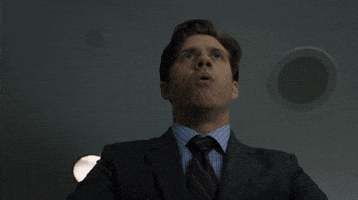Navigation
Install the app
How to install the app on iOS
Follow along with the video below to see how to install our site as a web app on your home screen.
Note: This feature may not be available in some browsers.
More options
You are using an out of date browser. It may not display this or other websites correctly.
You should upgrade or use an alternative browser.
You should upgrade or use an alternative browser.
CURRENT EVENTS - May 8-13
- Thread starter nycfan
- Start date
- Replies: 335
- Views: 5K
- Politics
I imagine it is quite boring
If the Saudis, Qataris, and Emiratis line up to kiss his ass and rain praise down on him like his Cabinet routinely does, Trump will perk right up.
If they aren’t talking about Trump, he’s bored.
Paine
Iconic Member
- Messages
- 1,777
And in many cases, these center left parties are the ones who ushered in austerity after the financial crisis. This is why figures like Corbyn and Sanders gained traction among downwardly mobile and independent voters. Precisely because they were seen as outsiders.I think one of the real problems - not only of Labour but of the Democrats here and other center-left parties in some other democracies such as Germany and France - is that they are not seen by the public as reform parties in a time of great economic change and disruption, but as status quo parties that are willing to tinker at the edges of reform without really doing much. In fact, in some cases, like Starmer, they seem to be bending over backwards to appease the hard right in their nations instead of being bold and charting their own course. And of course they're never going to get more than a handful of votes at most from those people, yet they continue to try over and over. It's like Chuck Schumer's statement earlier this year that he thought that Senate Republicans will surely turn against Trump at some point because so many of them have told him privately that they hate Dear Leader so much.
It seems like most of these parties are trying to position themselves as the "safe and sane" alternative to the nuts opposing them, but they also give the impression to voters that they're not in favor of any real change. It's not a good time to be a status quo party almost anywhere, yet that seems to be the order of the day for many of these center-left parties.
We can’t cede the outsider lane to the right. This is what happened here in 2016 and 2024. If voters in the UK are trying to decide between Starmer and Farage, they may make the same calculation.
WaynetheDrain
Iconic Member
- Messages
- 1,065
Shocker
If Biden stories help keep your mind off the Trump fuckery, then so be it.
superrific
Legend of ZZL
- Messages
- 7,310
Not really. It was mostly Merkel, IIRC. The Germans were by far the biggest pushers of austerity. The UK's austerity was put in place by David Cameron, a conservative.And in many cases, these center left parties are the ones who ushered in austerity after the financial crisis.
The losers from austerity were Spain, Portugal and Italy. And Ireland. None of them had much choice, because they don't control their own currency. This is a major drawback of monetary union, probably the most important one.
Paine
Iconic Member
- Messages
- 1,777
I think Merkel and the CDU fit nicely onto the center-left in this context though, even if they are considered center right in Germany and Europe as a whole.Not really. It was mostly Merkel, IIRC. The Germans were by far the biggest pushers of austerity. The UK's austerity was put in place by David Cameron, a conservative.
The losers from austerity were Spain, Portugal and Italy. And Ireland. None of them had much choice, because they don't control their own currency. This is a major drawback of monetary union, probably the most important one.
Cameron’s Conservative Party was also pretty liberal, especially looking back with our current understanding.
The point remains the same: the center is discredited. The left has been gutted. The right and far right are the only ones offering answers to a lot of the questions that average voters are concerned about.
I guess it would be more accurate to revise my earlier statement from center left to liberalism.
Last edited:
theel4life
Iconic Member
- Messages
- 1,134
Silence Dogood
Esteemed Member
- Messages
- 532
ChileG
Iconic Member
- Messages
- 1,588
superrific
Legend of ZZL
- Messages
- 7,310
I would disagree. In the US, our liberal president pushed through a stimulus, not austerity.I think Merkel and the CDU fit nicely onto the center-left in this context though, even if they are considered center right in Germany and Europe as a whole.
Cameron’s Conservative Party was also pretty liberal, especially looking back with our current understanding.
The point remains the same: the center is discredited. The left has been gutted. The right and far right are the only ones offering answers to a lot of the questions that average voters are concerned about.
I guess it would be more accurate to revise my earlier statement from center left to liberalism.
Germany wasn't being liberal with its push to austerity. That was the conservative side of the CDU. It's fundamentally circular to say, "the CDU is overall liberal so liberalism is the problem" when the CDU was acting decidedly anti-liberal.
The problem in Europe is the German fetish with sound money. It's not entirely irrational for Germany; after all, monetary profligacy helped create Hitler. I think the time has come to move on. But anyway, that's the story of austerity in Europe, as I understand it having followed quite closely through the writings of Paul Krugman.
I would say that by far the biggest issue for the right-wing in Europe is the same issue as here: racism and xenophobia. The "government has failed us" is mostly just an excuse or a euphemism. For example, I seriously dated a liberal Austrian woman in the early 2000s. She really didn't like the Turks who had settled in Vienna. I wasn't sure if her attitude was racist or just an inconvenience experienced by a young woman; at the time I gave the benefit of the doubt, though in hindsight I think there was definitely racism involved. Point is, even the educated elites in Europe (she was/is a neurologist) can often be uncomfortable with outsiders. Sometimes, as in the Balkans, it becomes quite a bit more than discomfort.
Right wing politics has long been defined in terms of exclusion of some out group, whether it's foreigners or Jews or immigrants or dark skinned people. That's what it will continue to be. The trains running on time is just a coverup.
- Messages
- 706
Paine
Iconic Member
- Messages
- 1,777
Well, I’m not surprised to find that you disagree with me about this.I would disagree. In the US, our liberal president pushed through a stimulus, not austerity.
Germany wasn't being liberal with its push to austerity. That was the conservative side of the CDU. It's fundamentally circular to say, "the CDU is overall liberal so liberalism is the problem" when the CDU was acting decidedly anti-liberal.
The problem in Europe is the German fetish with sound money. It's not entirely irrational for Germany; after all, monetary profligacy helped create Hitler. I think the time has come to move on. But anyway, that's the story of austerity in Europe, as I understand it having followed quite closely through the writings of Paul Krugman.
I would say that by far the biggest issue for the right-wing in Europe is the same issue as here: racism and xenophobia. The "government has failed us" is mostly just an excuse or a euphemism. For example, I seriously dated a liberal Austrian woman in the early 2000s. She really didn't like the Turks who had settled in Vienna. I wasn't sure if her attitude was racist or just an inconvenience experienced by a young woman; at the time I gave the benefit of the doubt, though in hindsight I think there was definitely racism involved. Point is, even the educated elites in Europe (she was/is a neurologist) can often be uncomfortable with outsiders. Sometimes, as in the Balkans, it becomes quite a bit more than discomfort.
Right wing politics has long been defined in terms of exclusion of some out group, whether it's foreigners or Jews or immigrants or dark skinned people. That's what it will continue to be. The trains running on time is just a coverup.
The masterstroke of the modern right is its ability to force liberal parties to take responsibility not only for the perceived excesses of liberalism but also the conservative turn of neoliberalism.
I’m not saying that liberalism is the problem, though I do believe parts of liberalism have contributed to our current political paradigm. It’s the same tactic that Republicans here took in 1968. They’ve ran with it ever since. Liberals still haven’t figured out an answer.
Liberals don't have that strong core of voters that will vote Republican because of guns, race and God, no matter what the reality of what is best for the country might be. That's not the only people they draw or the only reason they draw them but it gives them a solid voting bloc that Democrats can't match.Well, I’m not surprised to find that you disagree with me about this.
The masterstroke of the modern right is its ability to force liberal parties to take responsibility not only for the perceived excesses of liberalism but also the conservative turn of neoliberalism.
I’m not saying that liberalism is the problem, though I do believe parts of liberalism have contributed to our current political paradigm. It’s the same tactic that Republicans here took in 1968. They’ve ran with it ever since. Liberals still haven’t figured out an answer.
theel4life
Iconic Member
- Messages
- 1,134
Paine
Iconic Member
- Messages
- 1,777
Oh, I agree. And Republicans are very adept at getting their natural voter base to be angry about one thing or another. When the entire identity of liberalism has been defined by its right-wing enemies, it’s not surprise that people start to hate liberalism.Liberals don't have that strong core of voters that will vote Republican because of guns, race and God, no matter what the reality of what is best for the country might be. That's not the only people they draw or the only reason they draw them but it gives them a solid voting bloc that Democrats can't match.
Liberals haven’t done themselves any favors in trying to escape this definition, though.
superrific
Legend of ZZL
- Messages
- 7,310
The modern right, or the modern left? I mean, it's not me who lumps Reagan and Obama presidencies into one big undifferentiated "neoliberal" regime.The masterstroke of the modern right is its ability to force liberal parties to take responsibility not only for the perceived excesses of liberalism but also the conservative turn of neoliberalism.
I mean, aren't you doing right now what you say "the right" is doing? It sounds like it to me, given that you're blaming the center-left for the neoliberalism espoused by the ruling center-right party in Germany. Or at least forcing liberalism to answer for a policy that liberals vehemently opposed.
- Messages
- 2,249
Actually being honest refreshing
Share:



